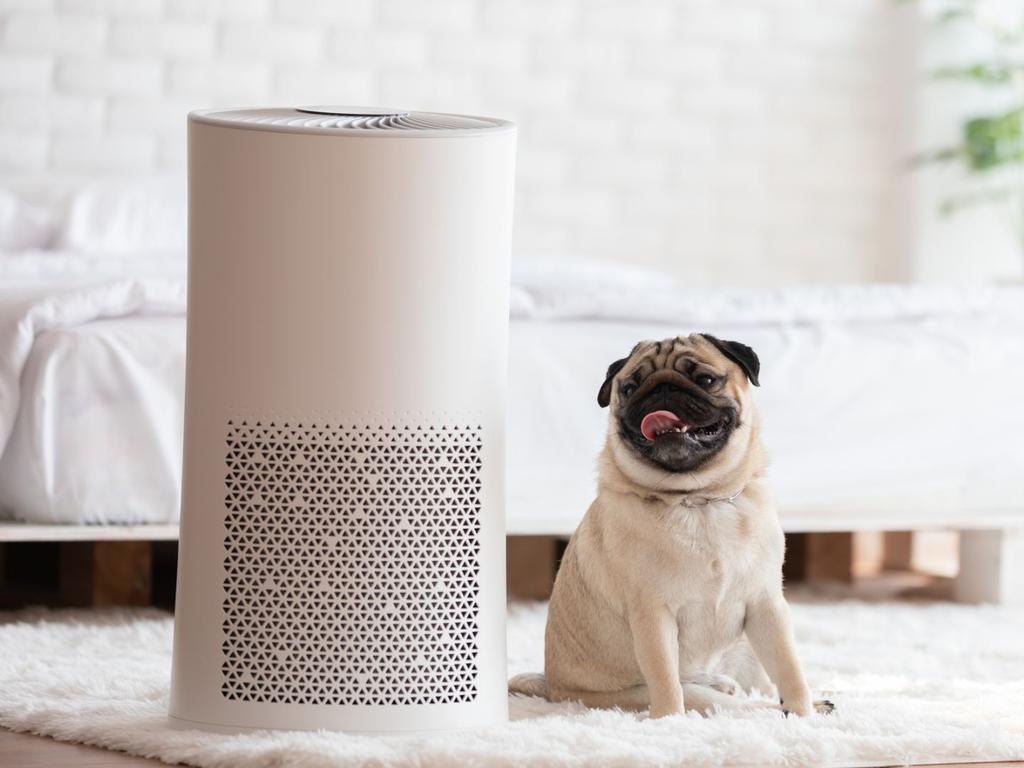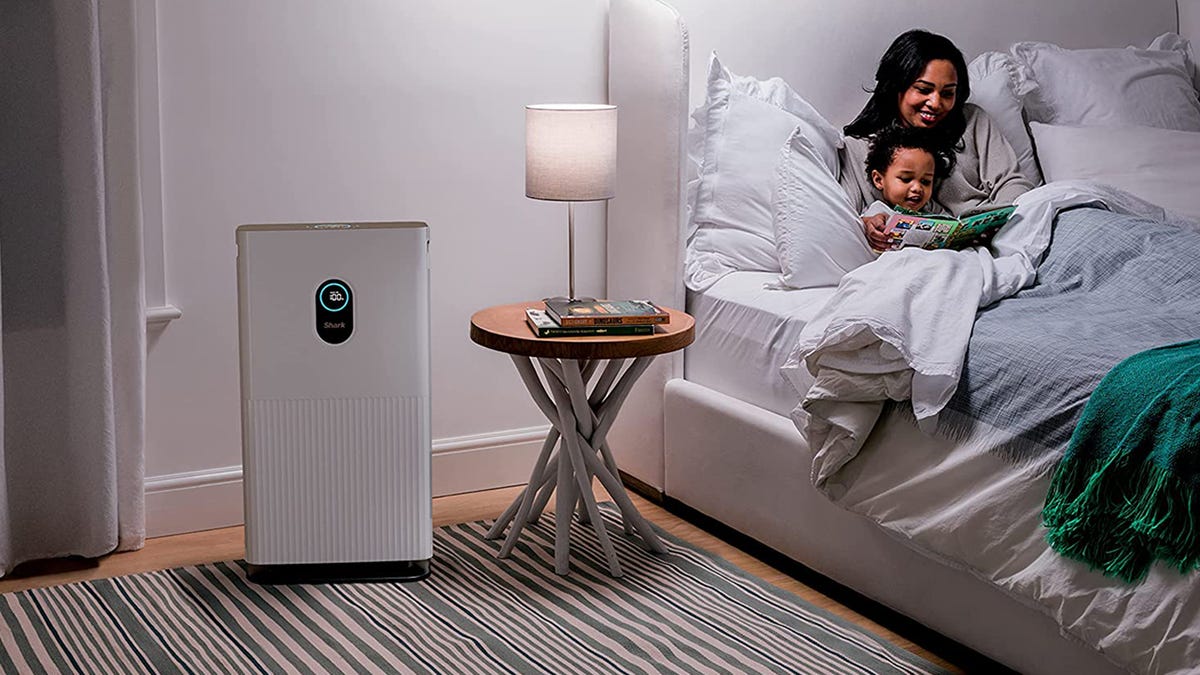Featured
Table of Contents
- – Comprehending Allergies and Triggers
- – Can Air Purifiers Aid with Allergies?
- – The Science Behind Air Purifiers and Allergies
- – Are Air Purifiers Right for You? Variables to...
- – Making the Many of Air Purifiers for Allergies
- – Beyond Air Purifiers: A Multi-Pronged Method t...
- – Living a Breath Easier Life with Allergies

Air purifiers are commonly touted as a solution, encouraging cleaner air and relief from allergy signs. Are air purifiers absolutely worth the financial investment for allergy sufferers?
Comprehending Allergies and Triggers
To recognize the role of air purifiers, allow's first look into allergic reactions and their triggers:
- The Sensitive Response: Allergies happen when your immune system panics to a harmless substance, like plant pollen or dirt termites. This reaction triggers the launch of histamines, triggering allergic reaction symptoms like sneezing, coughing, itchy eyes, and a dripping nose.
- Typical Allergens: Indoor allergens include allergen, family pet dander, mold spores, pollen that drifts inside your home, and even roach irritants. These airborne bits can aggravate your respiratory tracts and cause allergic reaction signs.
Can Air Purifiers Aid with Allergies?
Air purifiers function by pulling in air, removing pollutants, and releasing cleaner air back into the space. Here's just how they can potentially benefit allergic reaction victims:
- Trapping Allergens: HEPA (High-Efficiency Particulate Air) filters, an usual type made use of in air purifiers, are highly efficient at recording airborne allergens like allergen, family pet dander, and plant pollen. By removing these triggers from the air you breathe, air cleansers can help in reducing allergic reaction symptoms.
- Improved Air Top Quality: Air cleansers can additionally get rid of various other irritants from the air, such as smoke, dust, and unpredictable organic substances (VOCs) This total enhancement in air quality can be beneficial for allergy victims that are sensitive to these extra triggers.
The Science Behind Air Purifiers and Allergies
Researches have shown that air cleansers can be handy in minimizing allergy symptoms. Below's a check out some crucial study findings:
- A 2019 review released in the journal "Existing Allergic reaction and Bronchial asthma Reports" wrapped up that air purifiers with HEPA filters can be efficient in decreasing allergy signs and enhancing lifestyle for people with allergic rhinitis (hay fever)
- A 2018 study published in the journal "Record of Allergic Reaction, Bronchial Asthma & Immunology" found that using an air purifier with a HEPA filter in the bedroom significantly decreased allergen allergen degrees and enhanced rest quality in people with asthma.
Nonetheless, it is essential to keep in mind that study also recommends some limitations:
- Air Purifier Insurance Coverage: Air purifiers are most efficient in the space where they are positioned. Their influence on irritants in various other components of your home could be very little.
- Severity of Allergies: While air cleansers can aid, they could not be a total remedy for serious allergies. Medications and other allergy management techniques may still be essential.
Are Air Purifiers Right for You? Variables to Consider
Right here are some vital aspects to take into consideration when deciding if an air purifier is worth it for your allergies:
- Extent of Allergies: If your allergic reactions are light and well-controlled with medicine, an air purifier could not be essential. For those with modest to serious allergies, an air purifier can be a beneficial device in taking care of signs.
- Kinds of Allergens: Think about the major triggers for your allergic reactions. Air cleansers are most reliable for air-borne irritants like dust termites, pet dander, and plant pollen. They might not be as useful for irritants like mold that expand on surfaces.
- Lifestyle and Setting: If you have pet dogs, live in an area with high pollen matters, or have worries about indoor air top quality, an air purifier can be helpful.

Making the Many of Air Purifiers for Allergies
If you determine to buy an air purifier for allergic reactions, here are some pointers for optimizing its performance:
- Pick a HEPA Filter: Search for an air purifier with a HEPA filter licensed to capture particles as small as 0.3 microns.
- Right Size for the Room: Make sure the air purifier has a Clean Air Delivery Rate (CADR) that appropriates for the size of the space you intend to use it in.
- Positioning Matters: Put the air purifier in the space where you invest the most time, such as your bed room.
- Routine Filter Maintenance: Replace HEPA filters according to the maker's instructions to maintain optimal performance.
- Incorporate with Other Strategies: Air cleansers are not a one-size-fits-all solution. Integrate them with various other allergic reaction administration methods like medication, regular cleaning, and allergen-proof bed linens.
Beyond Air Purifiers: A Multi-Pronged Method to Allergy Monitoring

While air cleansers can be a useful tool in your allergy collection, they are not a wonder drug (If you're looking to buy an Air Purifier then Air Cleaners Australia is the best destination.). A detailed method that integrates air purification with various other approaches is essential to attaining lasting allergic reaction relief. Here are some additional methods to think about:
- Drug: Antihistamines, decongestants, and nasal corticosteroids, suggested by your physician, can properly handle allergic reaction signs.
- Allergic Reaction Testing and Immunotherapy: Identifying your details irritants via allergy testing can lead the way for immunotherapy, a treatment that helps desensitize your immune system to irritants gradually.
- Air High Quality Administration: Routine cleansing with a HEPA-filtered hoover and allergen-specific cleaning products can considerably decrease allergen, animal dander, and various other irritants in your home.
- Controlling Moisture: Mold flourishes in humid settings. Using a dehumidifier can help manage humidity levels and prevent mold development, a common interior irritant.
- Way of living Adjustments: If you have allergic reactions to pollen, remaining indoors during peak plant pollen periods and bathing after hanging out outdoors can aid decrease exposure.
- Bed linen and Surface Areas: Encasing cushions and bed mattress in allergen-proof covers can dramatically decrease allergen direct exposure. Consistently cleaning bed linen in hot water assists eliminate allergens.
Living a Breath Easier Life with Allergies
Bear in mind, handling allergic reactions is a continual process. By understanding your triggers, executing a multi-pronged approach, and possibly integrating an air purifier right into your technique, you can considerably decrease allergy signs and symptoms and breathe much easier.
Additional Factors To Consider:
- Consulting a Medical professional: If your allergies are serious or otherwise well-controlled with medication and way of life modifications, consult a specialist for personalized recommendations.
- Air Top Quality Surveillance: Consider making use of an air high quality monitor to track irritant levels in your house and adjust your administration strategies appropriately.
- Long-Term Financial investment: A great quality air purifier can be a long-lasting financial investment in your health and wellness.
By taking a proactive strategy and taking on a combination of these methods, you can create a much healthier and allergy-friendly setting, permitting you to take pleasure in a breath easier life.
Table of Contents
- – Comprehending Allergies and Triggers
- – Can Air Purifiers Aid with Allergies?
- – The Science Behind Air Purifiers and Allergies
- – Are Air Purifiers Right for You? Variables to...
- – Making the Many of Air Purifiers for Allergies
- – Beyond Air Purifiers: A Multi-Pronged Method t...
- – Living a Breath Easier Life with Allergies
Latest Posts
Are Yeti Rambler Tumblers Built For Dishwasher Durability? Things To Know Before You Get This
Comprehending the Transition: Why Pymble is Phasing Out Gas
About Is It Safe To Put Yeti Ramblers In The Dishwasher?
More
Latest Posts
Are Yeti Rambler Tumblers Built For Dishwasher Durability? Things To Know Before You Get This
Comprehending the Transition: Why Pymble is Phasing Out Gas
About Is It Safe To Put Yeti Ramblers In The Dishwasher?